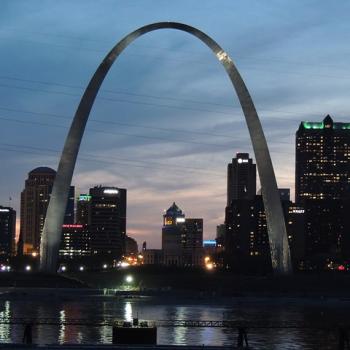There are things that most Mormons believe that I doubt. There are some things that many believe that I don't. There are things about which I've been confused or skeptical but now no longer care about one way or another, and there are issues for which my doubts have been resolved. Sometimes my questions have been minor. Sometimes they've been almost traumatic. Yet I continue to be a believer. Almost fifty-two years after my conversion, I'm still a Mormon.
I assume that I'm not unusual in this regard, that this experience of doubt and even unbelief is the normal experience of all whom we call believers. In fact, I assume that people who don't have that experience with religious belief are not yet mature in their belief.
Hearing a young man give a short sermon in church recently, I was impressed with his commitment and zeal. But I worried for him: how is he going to respond when, as he almost certainly must, he comes up against something that challenges his belief and for which he has no response? That seems unimaginable to him at the age of eighteen, and that may make the experience all the more difficult.
Like most before him, he will probably work his way through whatever problem arises and continue on stronger and more mature. But I worry that he could be one of those who does not. Perhaps coming from such naïve certainty and discovering doubt, he will lose his faith. But that would be a mistake: failures of belief need not be crises of faith since faith and belief are not the same.
With some regularity we use the words faith and belief interchangeably. We speak of those who profess a certain faith. We often call such people believers, making it appear that professing faith and having belief are the same. Our language isn't precise in these matters and normally it doesn't need to be.
But that imprecision can mislead us. Faith rather than belief is central to Christianity. But if we equate the two, then our difficulties with belief can become crises of faith. Not seeing the difference between faith and belief can have deadly spiritual consequences.
As the New Testament uses the Greek word that we translate faith (pistis), it means "trust or fidelity." A person of faith is a person who trusts and who can be trusted. If I trust in Jesus Christ to redeem me from the fallen state of human being, then I am a person of faith. If I trust in him, then I also am trustworthy: I can be trusted to work at living the life he calls me to.
In that relationship of trust, I will certainly have beliefs. I don't know what it would mean to trust in Jesus if I don't believe that he exists and is divine. Nevertheless my trust and my beliefs aren't the same thing. And many of my beliefs, perhaps even most of them, can waver or even fail with little effect on my faith.
According to LDS scripture, faith that Jesus is Messiah is fidelity to the message that he and his messengers have taught: faith in Jesus, repentance, baptism for the remission of sin, reception of the Holy Ghost, and endurance to the end (e.g. 3 Nephi 18:10-12). Faith is fidelity to the life that message opens for us.
I cannot be faithful to that preaching, that gospel, without also having beliefs, but the beliefs are not the same as my faith. My beliefs can change. Some can atrophy or disappear. Others can develop in directions that I had not expected. I can hold my beliefs differently than others who are equally faithful. But none of those changes dictates a change in my faithfulness.
Given my conversion experience, faith means living the life I was called to in that experience. It means being part of a community of other faithful people and being faithful to them. It means ministering to those outside as well as inside that community (Mosiah 18:8-9), strengthening feeble knees (Job 4:4) and lifting hands that hang down (D&C 81:5), insuring justice for the widow and the orphan (Dt. 10:18), working toward a community in which there are no poor (Moses 7:18).
Faith means making and keeping covenant with God (D&C 84:48). It also means having doubts and dealing with them faithfully, faithful to my community, my family, and my Heavenly Father.
12/2/2022 9:09:20 PM





